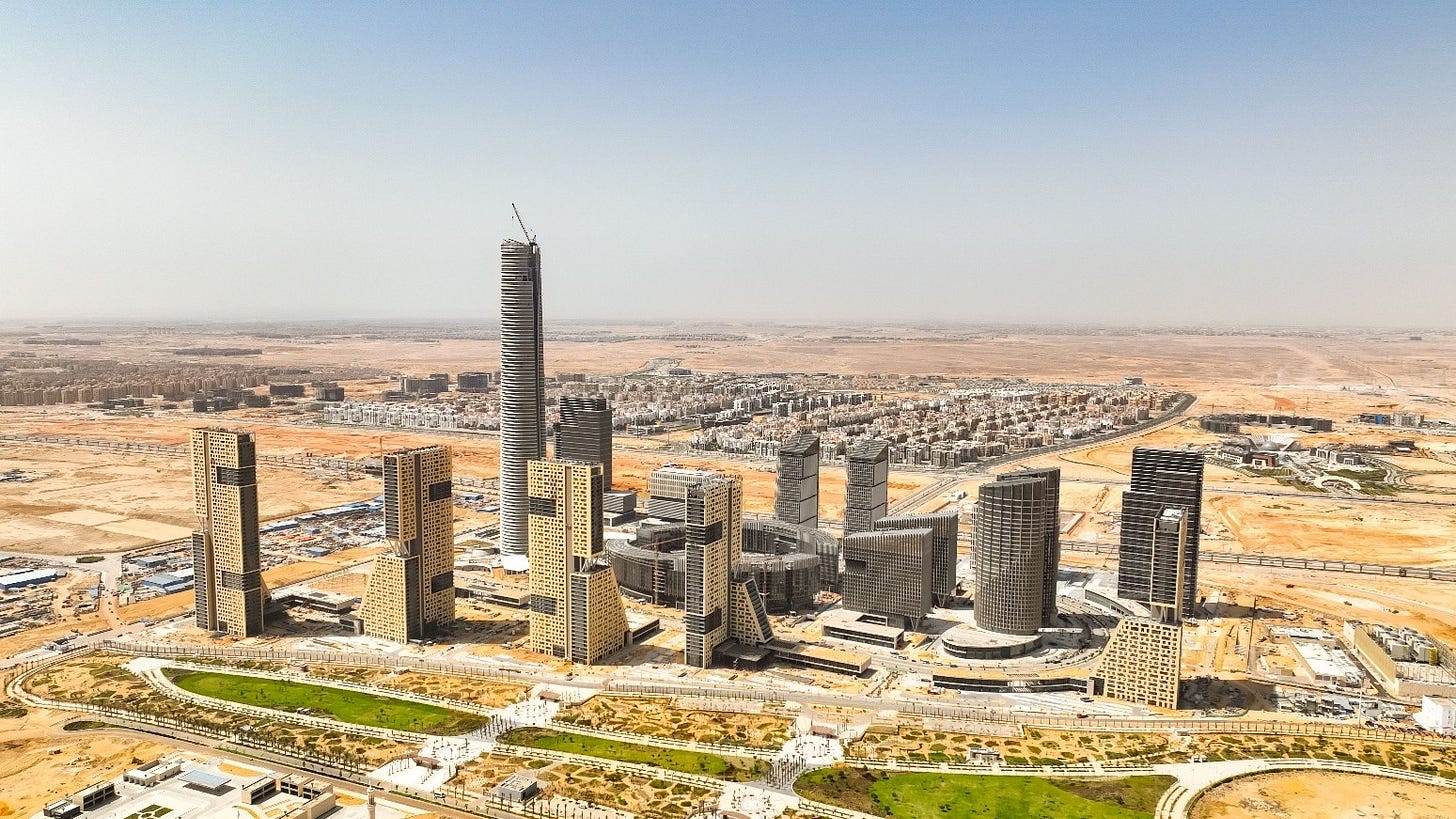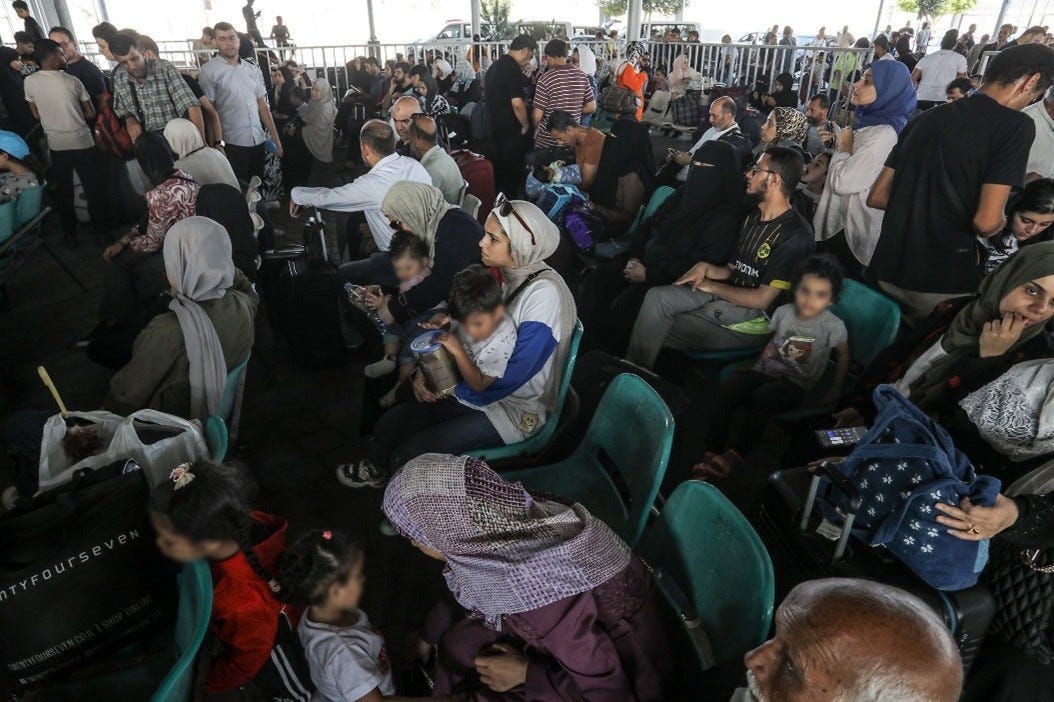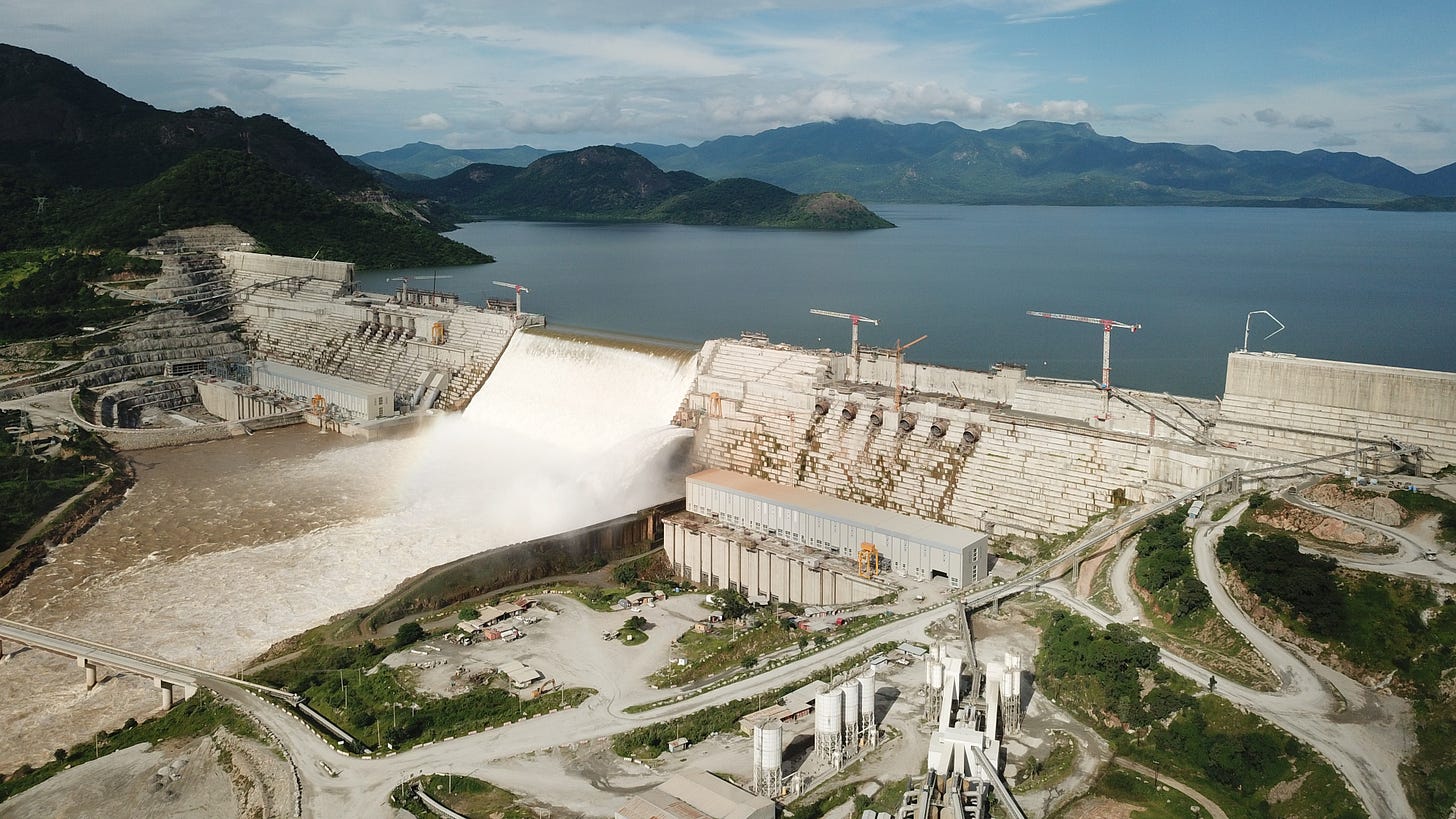[ad_1]
“El Shab Taban” is frequently heard these days on Egypt’s streets. At first sight, the expression “people are tired” seems to contradict reality, since Arabs’ most populous nation has over the past few years become not only more modern, but also more dynamic. Where only one decade ago, traffic in downtown Cairo was a nightmare. Today, due to enormous new road and subway projects, it is possible to move at most hours of the day swiftly from one end of the mega metropolis of 22 million inhabitants to the other.
Similarly, the painfully long lines at the immigration counter of the International Airport of Cairo have, thanks to a digitally supported clearing, all but disappeared. And where not so long ago even the rich lived nearby the poor, now numerous gated cities make life in Cairo for those who can afford it not much different from that in New York, London, or Paris.
At the same time, the government has, over the past few years, created all along the Nile valley new mega towns that are specially designed for the lesser privileged classes. These new urban areas of the privileged and underprivileged alike are located far out in the desert and thus far away from the traditional urban centers. The ongoing construction spree is not only the result of the population growth or due to concerns about agricultural land, but maybe even more to allow the authorities better control of the masses. Much of downtown Cairo has thus been emptied of its rich and poor inhabitants alike, which makes less likely a repeat of the spontaneous mass protests that took place during the Arab Spring on the centrally located Tahrir Square.
Welcome to what has become known as the “new republic” of President Abdel-Fattah el-Sisi, where an all-powerful military regime has extended a grip over society not seen in the modern history of the country of 110 million inhabitants. During his 13 years of rule the former minister of defense has transformed the at-least nominally egalitarian Arab Republic of Egypt into a modern society where a bloated welfare system with its food, energy and transport subsidies has given way to what a recent report by the Carnegie Middle East Center calls “an ethos where nothing is for free.” But the land on the Nile faces enormous social, economic, and geopolitical challenges, which taken together are not only an existential threat for Egypt but also have major implications for the whole Middle East and beyond.
Nothing exemplifies the “can do” spirit of the new republic better than the new Administrative Capital, which with technical assistance of a giant China engineering corporation and financing of the United Arab Emirates, is largely being built by militarily-linked local contractors. The project lies 50 km northeast of Cairo and upon completion should house not only the offices and private homes of the highly centralized state bureaucracy, one of the world largest defense headquarters, the country’s two legislative chambers, foreign embassies as well as all the consumer, educational, cultural and sport amenities that go along with a modern capital city.
But the question remains wide open whether the government’s social engineering will bring its desired results. Even though its cash-strapped authorities have launched massive construction projects that go along with a neoliberal austerity agenda, when it comes to scaling back its bloated civil service, the scrapping of subsidies to its citizens, or the floating of the local currency, the country has for years stood at the brink of an economic crisis. Not all the economic woes are the result of mismanagement. Egypt, as the world’s largest importer of wheat in 2022, has been hard hit by the sharp price spike of commodities following the Russian invasion of Ukraine. Then, from 2023 onward, due to the war in Gaza, the economy was hit by a massive drop in tourist arrivals and Suez Canal revenues, two of the country’s most important hard currency sources. The internal economic balances, as well as the recent external shocks, make Egypt today more than ever before dependent on foreign sovereign funding.
Due to its geography, Egypt has, since Pharaonic times, always been a highly centralized country. But there have always been phases during which civil society has enjoyed more leeway than at other times, as last in the 1990s and the early 2000s. But since the takeover of el-Sisi, the economic decision-making process has been even more concentrated in the hands of the military, while at the same time, the civilian bureaucracy, political parties, privately owned companies, or the media have practically become marginalized. The present situation has drawn comparisons with the rule of the Mamluks, a closely knit warrior class, which until the early 1800s had kept Egypt for centuries in their iron grip. This relatively recent development is not only due to raw repression and the co-option of possible dissident voices, but the fact that secular forces and the Christian minority supported the bloody coup of the military against the Islamic Brothers in 2013.
That doesn’t mean the new system hasn’t produced new wealth, but this lies mostly in the pockets of officers or military-connected persons. At the same time, because of the sharp reduction in public spending on health, education, and food subsidies, the poverty rate has risen steeply. On top of this, constantly high inflation and a dramatic devaluation of the Egyptian pound have eroded, if not wiped out, the buying power and savings of the traditional middle class.
To better understand the present, it is worthwhile to look back at the country’s younger history. El-Sisi was Minister of Defense when, in 2013, the military overthrew Mohamed Morsi, who, in the wake of the popular uprising of the Arab Spring of 2011, was Egypt’s only-ever democratically elected head of state. Before Morsi’s short-lived reign, the Army had ruled the country uninterruptedly since 1952, when it chased King Farouk from power following Arab defeat in the 1948 war with Israel, which the officers widely blamed on a corrupt and ineffective government.
In the years following the establishment of the Arab Republic of Egypt, many of the country’s large companies were nationalized. In the two decades following the takeover, the still dominantly agrarian society prepared for another military confrontation with Israel by putting most of its resources into building up heavy industries and a powerful army. At that time, the still-uncontested leading Arab nation projected its power in the entire Middle East, including a disastrous military adventure in Yemen.
The costly wars and mismanagement of the command economy, dependent on Soviet technology and finance, led ultimately to a deep economic crisis. In answer, then-President Anwar Sadat initiated in the 1970s an economic liberalization program that opened the door to the private sector. At the same time, normalizing relations with Israel and switching allegiance away from Moscow to Washington, Egypt gained access to Western investment and capital markets. But Sadat’s open door-policy and further economic reforms, at least till the last phase the rule of his successor former Air Marshal Husni Mubarak, never seriously diminished the dominance of the military industrial complex, which despite all macroeconomic reforms coupled with timid privatization programs, extends till today into such civilian sectors such as agriculture, tourism and consumer staples.
The only serious threat to the military’s dominance came in the last years of Mubarak’s rule. It is widely believed today that the military did not suppress the popular uprising against Mubarak because he favored as his successor his son Gamal, a western-educated businessman, who grouped around him ambitious local entrepreneurs that all favored the privatization of lucrative military-controlled companies.
Sisi, who himself rose through the ranks mostly in military intelligence, seems today to be in full charge. One lesson he learned from Mubarak’s fate is not to alienate the officer class by threatening their material privileges, but also to have a close eye on whatever goes on around him. His son Mahmoud has not gone into business, but made a steeply-rising military career, where currently he is the second in command of the powerful General Intelligence Directorate.
Despite a democratic façade of regular elections, parties, and courts, Sisi relies not only increasingly on a Chinese surveillance technology-assisted security apparatus, strict censorship, and a vast incarceration system, but probably most importantly, a firm grip on almost any aspect of the formal and even informal economy.
All this has crippled private-sector growth as well as the generation of savings. Egypt in 2018 announced, in exchange for partial debt relief cuts and new loans, six privatization programs. Even though it did not seriously implement the policy, the government has been kept afloat by new grants, loans, and other aid in the amount of not less than US$200 billion from oil-rich Arab Gulf states, multinomial financial institutions like the International Monetary Fund and the European Union. Not included is the US$1 billion annual US military assistance, as well as large European-financed weapon imports. In addition to this, the county has become increasingly dependent on state-backed Chinese loans and investments.
But this dependence on foreign sovereign funding illustrates in an exemplary way that a seemingly internally very strong regime is exposed to external shocks and pressures, and on multiple fronts. Nothing highlights this better than Cairo’s complex relationship with Israel. The Jewish state is the major source of Egypt’s vital natural gas imports. Both countries are also large recipients of US military aid, which brings with it not only direct operational, but also personal contact between officers of both sides, including the vital exchange of intelligence. It is also an open secret that Israel has, over the years, been lobbying in Washington for US economic and military aid, knowing that such dependence creates leverage over Cairo’s decision-making processes.
But the war in Gaza that followed the October 7, 2023 Hamas attack has become an increasingly emotional domestic political issue. The strict state censored the media to show solidarity with the victims, while at the same time carefully managing its criticism of Israel, not only because Hamas is an ideological offspring of the Muslim Brothers, of which tens of thousands are locked up in Egyptians prisons, but also because the US has in the past has tried to use the acceptance of internally displaced Gazans by Egypt in exchange for generous financial assistance.
Little is known about the internal discourse of the core members of Sisi’s regime, but it has transpired that especially junior officers have made it clear that such transfer of refugees is for them a no go.
Despite such sentiment, Israel’s attrition war with Hamas is not only in the interest of the Egyptian regime, but also of its foreign financial backers in Saudi Arabia and the United Arab Emirates. The banned Muslim Brothers were, thanks to their close adherence to Islamic law as well as its efficiently administered social services, more in touch with the predominant religiously conservative common people than Egypt’s aloof military regime and the feudalist Gulf monarchies. The 97-year-old movement is perceived as a mortal menace to their own power.
But the biggest threat to Egypt’s stability, if not even survival, comes these days not from its economic crises, domestic political dissent, or the even the war in Gaza, but the unsolved conflict with Ethiopia over the free flow of the Blue Nile, accounting for 90 percent of Egypt’s fresh water. Already 30 years ago, Boutros Boutros-Ghali, an Egyptian diplomat who became UN Secretary General, predicted that his country’s next war would be fought over water. Cairo has always maintained that the construction of dams upstream from its southern border with Sudan without a prior ironclad agreement on water sharing would be a causa belli. With the near completion of the Grand Ethiopian Renaissance Dam, a precedent has been set that could lead to diversion on a greater scale.
The project’s construction began in 2011, the same year Mubarak, with the implicit agreement of at least part of the military hierarchy, was driven from power. Egypt thus not only has the problem of Israel in the north, but also the dam in the South. To this comes the continued fighting in Libya, Egypt’s western neighbor. With the fall of the Syrian leader Hafez al-Assad and the ascent of Ahmed al-Sharaa, once a commander of the al-Qaeda-linked Hayat Tahrir al-Sham, came a power that traces its ideological roots to the Muslim Brotherhood.
Egypt is today under pressure from all fronts. It depends on its stability not only on a repressive regime, but even more so on foreign funding. Should the state fail, the floodgates that opened for refugees to Europe after the start of the Syrian civil war would pale in comparison. If nine years ago the influx of illegal immigrants had a ripple effect on Europe’s political landscape, the unsettling of 110 million Egyptians would cause a political earthquake. Unrest in Egypt that would empower radical Islamic groups or bring back to power the Muslim Brotherhood would also be a direct threat to the oil-rich Gulf countries’ monarchies.
Cairo knows very well how terrified Europe and the Arab monarchs are of such a scenario. The government has now been known to use such anxieties to obtain foreign financial assistance for its frail economy, as well as diplomatic help in facing its geopolitical challenges. But to play with such fears is in the long run no real substitute for wider economic and political reforms. El Sisi rides a tiger.
This assessment was written by an individual who recently completed a long assignment in Egypt and who asked not to be named.
[ad_2]
Source link




